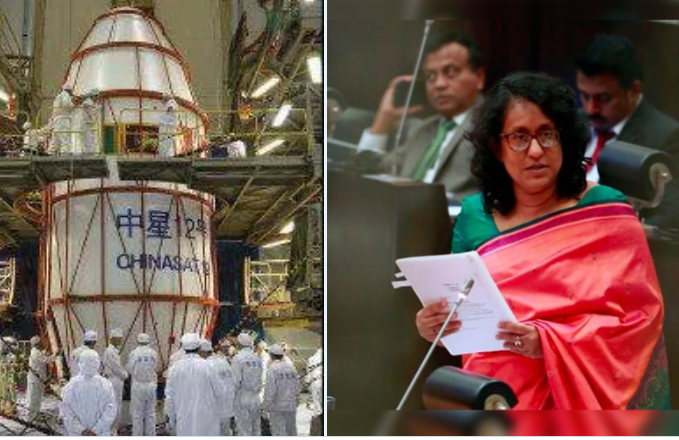In May 2012, SupremeSAT emerged as a symbol of ambition in Sri Lanka’s technological landscape. Registered with the Board of Investment (BOI), the company declared an investment of Rs 1.828 billion and promised to launch the country into the space age. But more than a decade later, the story of SupremeSAT reads less like a tale of innovation and more like a cautionary account of opaque dealings, political entanglements, and systemic failures in oversight.
At the heart of SupremeSAT’s structure were two entities: Supreme Global Holdings, which held 80% of the company, and Supreme SL Investment, which held the remaining 20%.
The project was led by R. M. Manivannan, owner of Supreme Global Holdings, alongside Jaya Sudhir Jayaram and Alberto de Simone. Manivannan appointed Rohitha Rajapaksa, the youngest son of former President Mahinda Rajapaksa, as Chief Technical Director. Rohitha received shares through Dycer International, a company he fully owned—an early sign of the political connections that would define the company’s trajectory.
Jaya Sudhir Jayaram, a Malaysian national, brought with him a trail of controversy. Media and UN reports have linked him to fraud and money laundering, including allegations of paying $10 million in bribes to Saddam Hussein’s regime during the Iraq Oil-for-Food scandal. He was also reportedly stopped at Sri Lanka’s airport with USD 50,000 in undeclared cash and released without penalty, allegedly due to political influence. These associations cast a long shadow over SupremeSAT’s credibility.
Supreme SL Investment, the local partner in the venture, has no visible operations and functions more like a shell company. Supreme Global Holdings, meanwhile, shows no clear link to any revenue-generating satellite business. Instead, its ventures appear speculative, including involvement in cryptocurrency, with little evidence of conventional operations or clients. The lack of transparency and accountability in both entities raises serious questions about the legitimacy of the investment.
The same group behind SupremeSAT later launched Horton Square, a large real estate project. It followed a familiar blueprint: offshore structures, the same key figures, and political ties.
Although the BOI rejected the project due to concerns over its directors, the Urban Development Authority (UDA) approved it. The company used Paradise Island Holdings Ltd., based in the UAE, to obscure ownership. One of its nominee directors was Renuka Shanmuganathan, sister-in-law of Nirupama Rajapaksa, a cousin of Mahinda Rajapaksa. The land for Horton Square was purchased from Purni Edwards, wife of Rienzie Edwards, who was indicted by the U.S. government in 2016 for a $50 million international fraud scheme involving shell companies and offshore accounts.
Even the satellite itself—SupremeSAT-1—was not what it seemed. It wasn’t a Sri Lankan-built spacecraft but rather leased capacity on ChinaSat-12, originally ordered as Apstar-7B. SupremeSAT simply co-branded and marketed the leased bandwidth as “SupremeSAT-1,” creating the illusion of a national achievement.
The confusion extended to Parliament, where Prime Minister Harini claimed SupremeSAT had generated Rs 343.9 billion in revenue. Minister Wasantha Samarasinghe later corrected the figure to Rs 343.9 million. Regardless of the number, it reflects company revenue, not national benefit. The PM’s acceptance of questionable figures highlights a troubling lack of financial literacy and scrutiny of BOI-submitted documents.
BOI companies enjoy income tax exemptions during their concession periods. SupremeSAT used this status to extract profits while contributing nothing to the national treasury. The BOI granted company status to politically connected entities without proper due diligence, enabling them to operate under legal cover and transfer profits offshore.
This case reveals a disturbing pattern: foreign or politically connected entities register with the BOI, declare massive “investments,” operate tax-free, and transfer profits offshore—leaving Sri Lanka with no tangible benefit. While some BOI companies are genuine, many abuse tax concessions, misreport finances, and function with zero oversight.
If there’s any silver lining to the SupremeSAT saga, it’s the possibility that it might prompt reform. The government must audit the BOI, review every agreement and commitment, and clean house. Sri Lanka deserves investment that builds its future—not just satellite-shaped illusions.
(With the inputs from Numbers.lk @numberslka)
